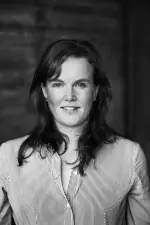Everyone knows how to summarise while taking lecture notes or studying. But there are several other techniques for learning. Educational psychologist Martine Baars has done years of research on learning to learn.
TEXT: Dennis Mijnheer
PHOTOGRAPHY: Mark Uyl
“We often overrate our abilities while learning,” says educational psychologist Martine Baars. “We’re quick to think, “Okay, got it.” Only to be disabused of this when our knowledge is tested and we’re awarded disappointing marks.” Most students will be familiar with this. Baars has been engaged with this subject for years. She is an assistant professor of educational psychology at the Erasmus School of Social and Behavioural Sciences, and obtained her PhD in June 2014 on the subject of self-regulated learning in primary and secondary education, for which she received a grant from the Dutch Research Council (NWO).
Baars explores how people can make their learning sessions more effective by using different strategies for studying, practicing time management and regulating their learning behaviour. “Research shows that children and adults are both bad at regulating their learning behaviour and learning processes,” says Baars. According to her, this is a shame, because effective learning is becoming an increasingly important skill for both current students and alumni. “Learning to learn is important for the kind of jobs society is increasingly going to need, because it is almost no longer possible to remain in the same job for the entirety of our working lives. Lifelong learning is becoming a prerequisite for success.”
“Learning involves three stages: planning, monitoring, reflection”
Planning, monitoring and reflection
In self-regulated learning, the learning process is split into three stages: planning, monitoring and reflection. “It begins with the preparatory stage: what is the task, what’s my goal and which strategy will I use? This is followed by the execution stage, in which we implement the studying strategy and monitor ourselves: how am I doing? Do I understand the material? Am I enjoying the experience? Once the session is over — say a morning of studying in the library or writing an essay — you proceed to the reflection stage. How did the session go? What went well? What didn't? And what should I do differently next time? When you consciously plan, monitor and reflect, you are regulating your learning process.”
An app with studying strategies
To put these empirically grounded insights into practice, Baars has developed a free mobile application called Ace Your Self-Study. “In building the app, I reviewed the educational psychology literature on studying strategies. This yielded a total of 22, which are explained in a short film.” One of these recommends spreading the workload. “You’re better off having three one-hour study sessions a week than trying to cram everything into one night. It’s more effective: you remember more and understand what you remember better.” The app takes you through the three stages and allows you to keep track of the details of your study sessions. “It also challenges you to the next round of studying, in a similar way, actually, to the way Strava and Runkeeper challenge you to work out more often and more effectively.”
Baars hopes the app will help students better regulate their learning processes and learn new strategies for studying. “Most of us were taught how to summarise while taking notes at school. But most people aren’t aware that there are several other techniques for learning, such as making a sketch of the mutual relationships between concepts, or creating a concept map in which concepts are defined in separate boxes that are then connected to one other with arrows. This allows you to tell an entire story in a single overview. Anyone using the app is likely to discover a whole range of useful studying strategies that they probably weren’t aware of.”
CV

NAME: Martine Baars
EDUCATION: Bachelor’s degree in pedagogical and educational science at Radboud University, Nijmegen; master’s degree in educational science at Radboud University, Nijmegen; PhD in educational psychology at Erasmus University, Rotterdam
FUNCTION: Assistant professor of educational psychology at the Department of Psychology, Education & Child Studies (DPECS), Erasmus School of Social and Behavioural Sciences